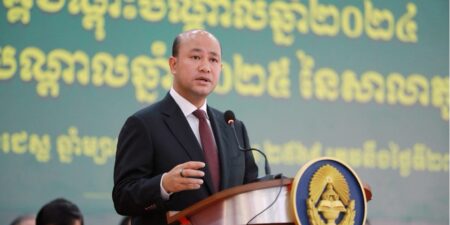The BGA Philippines Team, led by Managing Director Victor Andres Manhit, wrote an update to clients on the Philippines’ upcoming midterm elections.
Context
- The Philippines’ May 12 midterm elections will be a critical juncture for the administration of President Ferdinand Marcos Jr. to consolidate political support and advance its strategic priorities. The logical grounds for the administration to seek majority control of the Senate and House of Representatives are rooted in advancing policy agendas, ensuring political stability, responding to public sentiment and strengthening the country’s defense posture.
- Majority control would enable the administration to pass laws aligned with its priorities. These include asserting the Philippines’ rights in the West Philippine Sea and fostering alliances with countries like Japan and the United States. A cooperative legislature minimizes gridlock and opposition, ensuring smoother governance and timely implementation of initiatives. Additionally, with increasing geopolitical tensions, legislative backing is vital for reinforcing military readiness, upholding international law and funding strategic partnerships.
Significance
- The Marcos administration seeks majority control of the Senate and House of Representatives to advance its legislative agenda, ensure political stability and respond to public sentiment. Majority control minimizes gridlock, expedites budget approvals and facilitates smoother governance. It is also critical for addressing urgent issues like inflation, poverty reduction, infrastructure development and corruption. Additionally, legislative backing is vital for reinforcing military readiness, asserting the Philippines’ rights in the West Philippine Sea and fostering alliances with countries like Japan and the United States.
- The potential impact of U.S. President Donald Trump’s tariff policy on the Philippine midterm elections could be indirect and largely economic. The policy, which imposes tariffs on imports to protect domestic industries of the United States, could disrupt global trade dynamics. If it leads to higher costs for imported goods or reduced demand for Philippine exports, it could strain the local economy, influencing voter sentiment.
Implications
- The preelection period under the Marcos administration presents a complex mix of political instability, public distrust and geopolitical risks that threaten governance and social cohesion. Political opportunism and disinformation further deepen public division and weaken institutional trust. However, this period also offers a crucial opportunity for reforms — through transparent governance, inclusive policymaking and strategic interventions — to rebuild public confidence and foster unity. By addressing these vulnerabilities, the Philippines can lay the groundwork for a more resilient, democratic and unified society.
- Economic challenges such as inflation, job losses in export-dependent industries and reduced foreign investment could become key issues during the elections, with voters scrutinizing candidates’ economic platforms and their ability to navigate global trade uncertainties. Moreover, candidates aligned with policies promoting economic resilience and diversification may gain favor, while those perceived as unable to address these challenges could face voter backlash. Although Trump’s tariff policy may not directly target the Philippines, its ripple effects on the global economy could shape the narrative and priorities of the Philippine midterm elections.
We will continue to keep you updated on developments in the Philippines as they occur. If you have any comments or questions, please contact BGA Philippines Managing Director Victor Andres “Dindo” Manhit at vmanhit@bowergroupasia.com.
Best regards,
BGA Philippines Team

Managing Director
Dindo is recognized as one of Manila’s most well-connected and savvy advisors on developments in government and business in the Philippines. Concurrent to his role as managing director for BGA’s operations in the Philippines, he is also the founder and managing director of the Stratbase Group and president of its policy think tank, the Albert del Rosario Institute for Strategic and International Studies. Since 1991, Dindo has served as a member of the faculty and is the former chair of the Political Science Department and a senior fellow of the La Salle Institute of Governance at the De La Salle ...
Read More


























